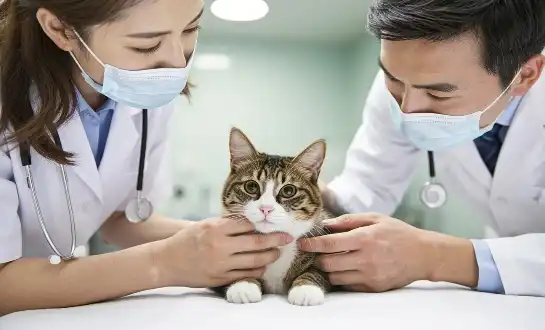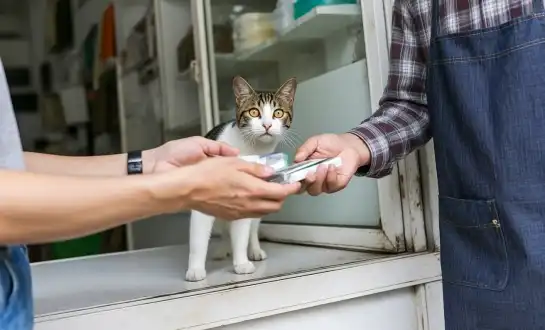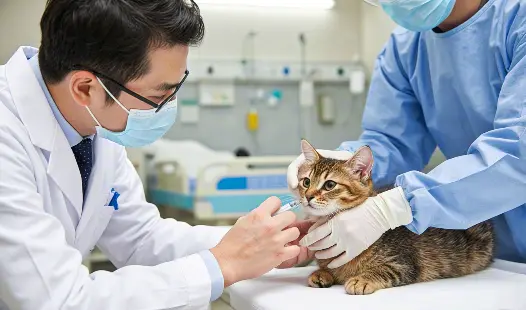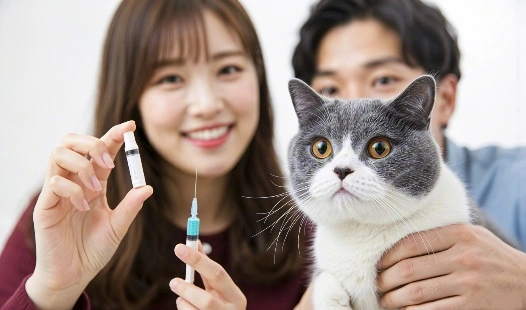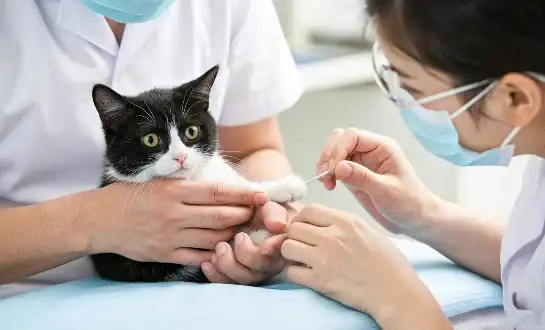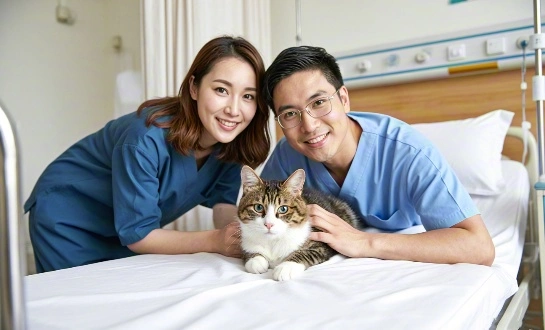What are the available injection treatments for FIPV?
Overview of FIPV and the need for effective treatments
- Overview of FIPV and the need for effective treatments
- Comparison of GS-441524 and other antivirals
- Preparing and storing FIP injection treatments
- Administering injections at home vs clinic
- Monitoring treatment progress and adjusting dosages
- Potential side effects and complications
- Conclusion
- FAQ
- Get Genuine GS-441524 Here
- References
Feline Infectious Peritonitis Virus (FIPV) has long been a devastating diagnosis for cat owners. However, recent advancements in veterinary medicine have brought hope in the form of injection treatments. FIP treatment has shown remarkable success in improving survival rates and quality of life for affected cats. This article will explore the available options, with a focus on the promising GS-441524 drug, and provide valuable information for pet owners and veterinarians alike.
|
|
|
Overview of FIPV and the need for effective treatments
FIPV is a mutated form of the feline coronavirus that can cause severe inflammation and organ damage in cats. Historically, FIPV was considered almost always fatal, with no effective treatments available. The development of injection treatments has dramatically changed the prognosis for many affected cats.
The impact of FIPV on feline health
Feline Infectious Peritonitis Virus (FIPV) has a profound and devastating effect on feline health. It primarily affects cats with compromised immune systems, leading to widespread inflammation throughout the body. The virus triggers an excessive immune response, causing inflammation in blood vessels and organ tissues. This damage can manifest in various ways, significantly impacting the cat's overall health.
FIPV can present in two distinct forms: wet (effusive) and dry (non-effusive). The wet form is characterized by the accumulation of fluid in body cavities, such as the abdomen or chest, leading to visible swelling and difficulty breathing. In contrast, the dry form involves the formation of granulomas (inflammatory lesions) in organs like the liver, kidneys, and eyes, leading to more localized symptoms such as organ dysfunction or neurological issues.
Both forms of FIPV can cause a range of severe symptoms, including persistent fever, weight loss, lethargy, and organ dysfunction. These symptoms often develop rapidly, and the disease can progress to a life-threatening stage in a matter of weeks. FIP treatment is crucial in managing these symptoms and halting disease progression. Therefore, early diagnosis and prompt, effective treatment are essential to improve the chances of survival and reduce the long-term health effects of FIPV. Without intervention, FIPV can lead to irreversible damage and, in many cases, death.
Comparison of GS-441524 and other antivirals
While several antivirals have been studied for FIPV treatment, GS-441524 has emerged as a frontrunner due to its efficacy and safety profile.
GS-441524: A breakthrough in FIPV treatment
GS-441524 is a nucleoside analog that inhibits viral replication. Clinical studies have shown promising results, with many cats achieving remission after a course of treatment. The GS-441524 drug has demonstrated efficacy against both wet and dry forms of FIP.
Other antiviral options
Other antivirals that have been investigated for FIPV treatment include:
- Remdesivir: A prodrug of GS-441524, which has shown similar efficacy but may be more expensive and less readily available.
- Interferon: While it has shown some antiviral effects, it is generally less effective than GS-441524 for FIPV.
- Ribavirin: This broad-spectrum antiviral has limited efficacy against FIPV and can cause severe side effects in cats.
Preparing and storing FIP injection treatments
 |
 |
Proper preparation and storage of injection treatments are crucial for maintaining their efficacy and ensuring safe administration.
Handling GS-441524 injections
GS-441524 is typically supplied as a powder that must be reconstituted with sterile water or saline solution. It's essential to follow the manufacturer's instructions carefully to ensure proper concentration and sterility.
Storage requirements
Most FIP injection treatments, including GS-441524, require refrigeration to maintain stability. They should be protected from light and kept at the recommended temperature range, typically between 2°C and 8°C (36°F to 46°F).
Administering injections at home vs clinic
The decision to administer injections at home or in a veterinary clinic depends on various factors, including the cat's temperament, the owner's comfort level, and the veterinarian's recommendations.
Home administration
Many cat owners choose to administer injections at home after receiving proper training from their veterinarian. This can reduce stress for the cat and provide more flexibility in treatment schedules. However, it requires careful attention to sterile technique and proper injection methods.
Clinic administration
Some owners prefer to have injections administered by veterinary professionals. This ensures proper technique and allows for regular monitoring of the cat's condition. However, it may be more stressful for the cat and less convenient for the owner.
Monitoring treatment progress and adjusting dosages
Regular monitoring is essential to assess the effectiveness of FIPV treatment and make necessary adjustments.
Clinical signs and laboratory tests
Veterinarians typically monitor a combination of clinical signs and laboratory parameters, including:
- Body temperature
- Weight
- Appetite and activity level
- Complete blood count (CBC)
- Serum chemistry panel
- Inflammatory markers (e.g., serum amyloid A)
Dosage adjustments
Based on the cat's response to treatment and any side effects observed, the veterinarian may adjust the dosage of GS-441524 drug or other antivirals. It's crucial to follow the prescribed treatment regimen and communicate any concerns to the veterinarian promptly.
|
|
|
|
Potential side effects and complications
While injection treatments for FIPV can be highly effective, they may also cause side effects or complications in some cats.
Common side effects of GS-441524
Some cats may experience:
- Injection site pain or swelling
- Temporary loss of appetite
- Mild gastrointestinal upset
- Lethargy
Managing complications
In rare cases, more severe complications may occur. These can include allergic reactions or kidney function changes. Close monitoring and prompt veterinary attention are essential if any concerning symptoms develop during treatment.
Conclusion
Injection treatments, particularly those using GS-441524, have revolutionized the management of FIPV in cats. While challenges remain, including accessibility and cost, these treatments offer hope for many cats previously considered untreatable. As research continues, we can expect further refinements in treatment protocols and potentially new options for combating this devastating disease.
FAQ
1. How long does FIPV treatment with GS-441524 typically last?
Treatment duration varies depending on the individual case, but it typically lasts 84 days (12 weeks). Some cats may require longer treatment periods, especially those with neurological or ocular involvement.
2. Can GS-441524 be used to prevent FIPV in cats exposed to the virus?
Currently, GS-441524 is not recommended for prophylactic use. It is primarily used as a treatment for cats with confirmed FIPV. Prevention strategies focus on reducing exposure to feline coronavirus and maintaining overall feline health.
3. Are there any alternatives to injection treatments for FIPV?
While injection treatments are currently the most effective option, research is ongoing into oral formulations of antivirals like GS-441524. These may offer a more convenient treatment option in the future, but their efficacy and safety are still being evaluated.
Get Genuine GS-441524 Here
At BLOOM TECH, we are committed to advancing the field of veterinary medicine through high-quality pharmaceutical products. As a leading GS-441524 Manufacturer, we offer premium-grade GS-441524 drug for FIPV treatment. Our product undergoes rigorous quality control to ensure purity and efficacy, meeting the highest industry standards.
With over 12 years of experience in organic synthesis and a state-of-the-art GMP-certified production facility, we guarantee consistent quality and reliable supply. Our professional team provides personalized support, from product selection to technical assistance.
Don't let FIPV diminish the quality of life for feline patients. Choose BLOOM TECH for your GS-441524 needs and join the fight against FIPV. Contact us today at Sales@bloomtechz.com to learn more about our products and how we can support your veterinary practice or research efforts.
|
|
|
References
- Pedersen NC, et al. Efficacy and safety of the nucleoside analog GS-441524 for treatment of cats with naturally occurring feline infectious peritonitis. Journal of Feline Medicine and Surgery. 2019;21(4):271-281.
- Murphy BG, et al. The nucleoside analog GS-441524 strongly inhibits feline infectious peritonitis (FIP) virus in tissue culture and experimental cat infection studies. Veterinary Microbiology. 2018;219:226-233.
- Addie DD, et al. Feline infectious peritonitis. ABCD guidelines on prevention and management. Journal of Feline Medicine and Surgery. 2020;22(11):1048-1068.
- Kim Y, et al. Reversal of the Progression of Fatal Coronavirus Infection in Cats by a Broad-Spectrum Coronavirus Protease Inhibitor. PLoS Pathogens. 2016;12(3):e1005531.

Echo
9 years of experience in chemical articles; Doctoral degree; Organic Chemistry major; R&D-4 Dept; Technology support; R&D engineer
Anticipating your Business & Technology support inquiry
Please send us the products that interest you, and we will provide you with one-on-one service
Recommended Blog

GS-441524 Injection Pricing Revealed: A Comparison of Brands and Suppliers
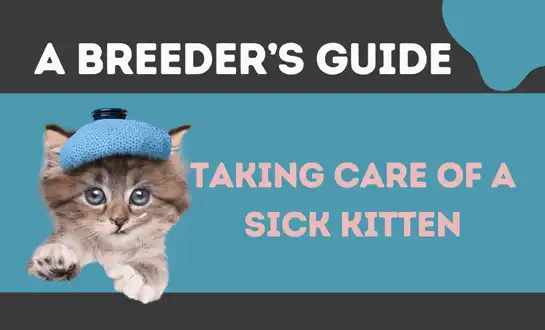
An FIP Cat's Treatment Diary: Tracking Changes Day-by-Day on GS-441524
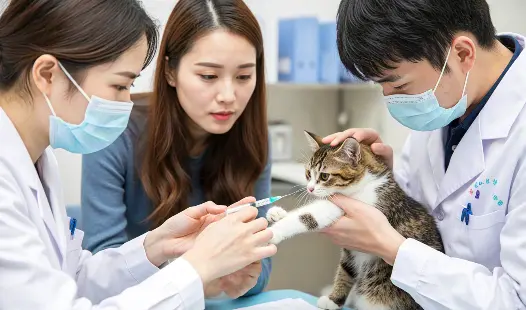
GS-441524 Injection Site Issues: What to Do About Redness and Lumps?









